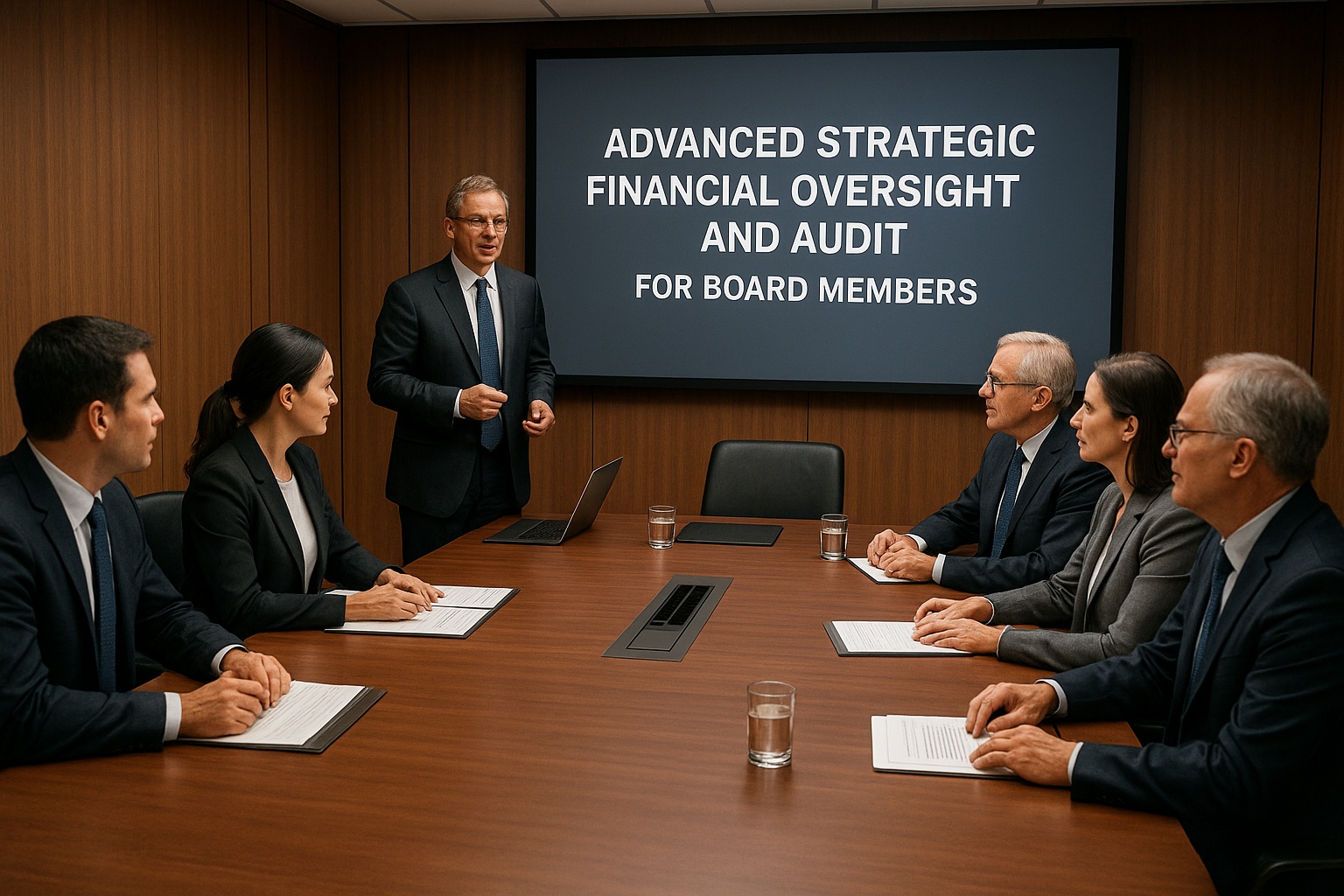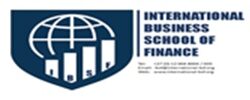- The IBSF
- Professional Courses
- C-Suite Program
- Reserve Banks and Treasury Programs
- Revenue Service Programs
- ICT and FINTECH Courses
- Commercial Banks & Other Financial Institutions
- Retail banking courses
- Corporate banking courses
- Investment banking courses
- Risk management courses
- Compliance and legal courses
- Banking operations courses
- Wealth management and private banking
- Loan and credit courses
- Financial management/accounting courses
- Foreign exchange and international banking
- Academic Courses
- Events
- Staff Directory
Advanced Strategic Financial Oversight and Audit for Board Members

About Course
The Advanced Strategic Financial Oversight and Audit for Board Members course is tailored for board members, audit committee members, and senior executives seeking to deepen their expertise in financial oversight, auditing practices, and corporate governance. This course takes a strategic, high level approach to financial management, emphasizing the board’s role in steering organizations through complex financial landscapes. Participants will explore advanced financial concepts, including interpreting sophisticated financial reports, navigating risks, evaluating internal controls, overseeing audits, and ensuring compliance with evolving regulations. Through expert-led sessions, case studies, and practical tools, the course offers a comprehensive framework for understanding the board’s responsibilities in overseeing organizational financial health, ensuring transparency, and mitigating financial and operational risks. By the end of the course, participants will have a robust understanding of how to manage financial strategy, evaluate audit processes, and oversee risk management from a governance perspective. Expected outcomes include enhanced ability to read and challenge financial statements, evaluate the effectiveness of internal and external audits, foster a culture of accountability, and guide long-term financial planning for sustainability. Participants will also gain insights into emerging financial trends and technologies that are shaping financial oversight and auditing. Ultimately, the course aims to equip board members with the knowledge and skills needed to effectively govern and protect the financial integrity of their organizations while providing value to stakeholders.
Target Audience: This course is designed for senior executives, board members, audit committee members, and financial professionals who are responsible for overseeing an organization’s financial operations,audits, and governance. It is ideal for individuals with a foundational understanding of financial management who are seeking to enhance their ability to evaluate complex financial situations, lead audits, and ensure regulatory compliance in increasingly dynamic business environments.
Key Takeaways:
- Advanced financial oversight tools to monitor and evaluate organizational performance.
- In-depth understanding of audit processes, internal controls, and financial reporting.
- The ability to assess financial risks and mitigate them through strategic oversight.
- Expertise in fostering transparency, accountability, and compliance within the organization.
- Insights into emerging financial technologies and regulations impacting financial oversight.
Instructors:
The course will be taught by an expert faculty comprising seasoned financial executives, certified public accountants (CPAs), former auditors, and corporate governance specialists. These instructors bring years of practical experience in both the private and public sectors, offering participants invaluable insights from real-world scenarios and best practices in financial oversight, auditing, and governance.
Course Content
Module 1: Financial Oversight Fundamentals
-
Unit 1.1: The Strategic Role of the Board in Financial Oversight
-
Unit 1.2: Key Financial Statements and How to Read Them
-
Unit 1.3: Ethics and Governance in Financial Oversight
-
Unit 1.4: Overview of Board Responsibilities in Financial Oversight
-
Unit 1.5: Establishing a Financial Oversight Framework for the Board
